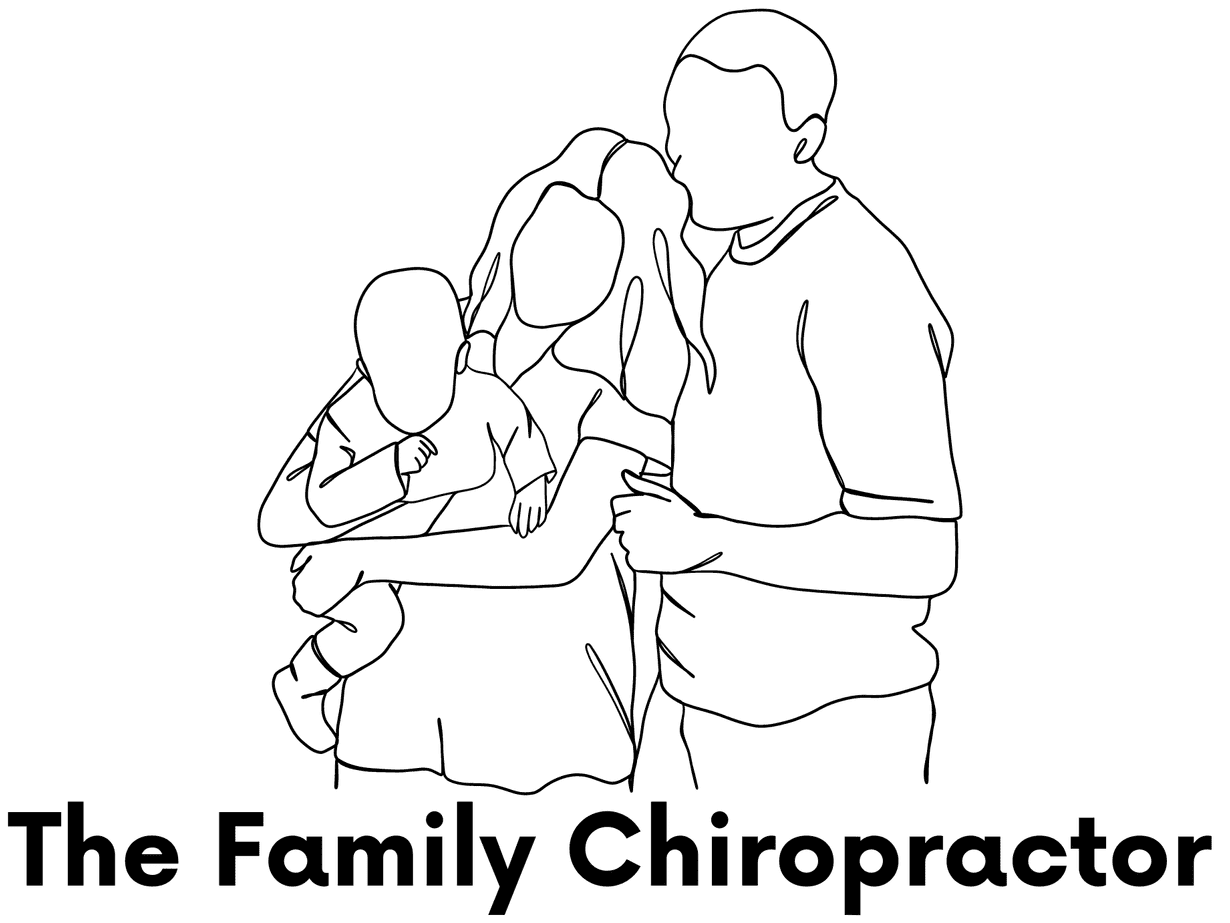Do you ever feel that your head is 'foggy', that you cannot concentrate properly or that your memory is failing you? This phenomenon is often referred to as brain fog or brain fog. Although brain fog is not an official medical diagnosis, it is a common complaint that can greatly affect your work, social life and daily functioning. But what is brain fog, what are the symptoms and how can you get rid of it? In this blog, we tell you more and look at possible causes. We also tell you how a chiropractor can help if you often experience brain fog.


What is brain fog and what are the symptoms?
Brain fog, also known as brain fog, refers to a mental state in which you may suffer from various symptoms. Brain fog can manifest itself in different ways. The most common symptoms are:
Difficulty concentrating
Forgetfulness and difficulty retrieving information
Reduced mental energy
Feeling of confusion or disorientation
Slow reactions and indecision
Headache or heavy feeling in the head
Confusion
It feels like your thoughts are not clear, as if you are trying to think through a 'haze' or 'fog'. Here comes the English name brain fog then come from (fog is the English word for mist). Brainfog or brain fog can be very frustrating, especially if it affects your work, studies or daily activities. Of course, everyone has a loss of clarity from time to time, but if you suffer from these symptoms regularly, it may be wise to look at the underlying causes and solutions.
Brain fog meaning: why do you experience brain fog?
What is brain fog then exactly? Briefly, it is a disruption of cognitive functions such as concentration and memory. It is not an isolated condition, but usually a symptom of underlying problems. Common causes of brain fog include:
Lack of sleep. Poor sleep is one of the biggest causes of brain fog. During sleep, your brain recovers and comes to rest. Poor sleep quality leads to mental sluggishness and difficulty focusing. If you suffer from sleep deprivation, it is important to investigate where this comes from so you can start working on improving sleep quality. Have you tried all the usual tips to improve your sleep? A chiropractor can look into whether a dysregulated nervous system could be the cause of your lack of sleep.
Stress and anxiety. Chronic stress increases the stress hormone cortisol, which negatively affects brain function. Stress can lead to concentration problems and mental fatigue, causing the typical brain fog symptoms. In addition, (chronic) stress is also unhealthy for your body in many other ways, so it is important to address the causes of your stress where possible.
Poor nutrition. A diet high in processed sugars and low in essential nutrients such as omega-3 fatty acids, B vitamins and magnesium can contribute to brainfog. Try to eat as much unprocessed food as possible and also eat oily fish a bit more often if you were not already doing so.
Hormonal imbalance. Many people experience brain fog due to hormonal fluctuations, such as during pregnancy, menopause or with thyroid problems. Women may also experience extra brain fog around menstruation.
Lack of exercise. Regular exercise stimulates blood flow to the brain and helps with cognitive clarity. A sedentary lifestyle can contribute to brain fog. Do you have a job that requires you to sit a lot, or do you move little in your free time? Try to move for at least 5 minutes every hour, by taking a short walk or doing some muscle exercises. This will get your heart rate up and stimulate blood flow to your brain, often helping you to think more clearly again.
Nervous system imbalance. A malfunctioning nervous system can greatly reduce your mental acuity. Your nervous system is the communication system that connects your brain to all other parts of your body. So it stands to reason that if your nervous system is not working as it should, the communication between your brain and body is not optimal. A sub-optimal nervous system can have many causes. A chiropractor can help you improve the functioning of your nervous system by reducing blockages in your spine.


Brain fog Dutch
If you search on 'brain fog Dutch' you come across terms such as 'brain masst' or 'cognitive fog'. Brain fog literally means 'fog in your head': you notice that your concentration decreases, your thoughts are slower and your head feels fuzzy.
How can a chiropractor help?
Chiropractic focuses on optimising the nervous system. The nervous system is your body's communication system, connecting your brain to all other parts of your body. If something goes wrong in that communication, you may experience brain fog. But how exactly does a chiropractor help with brain fog?
Improving blood flow to the brain. If there are blockages in the spine or the alignment of the spine is not optimal, blood circulation to the brain may decrease. This is often especially the case if the blockages are in the neck (cervical spine). Reduced blood flow to the brain can lead to reduced oxygen and nutrient supply, which can cause brain fog. Chiropractic corrections remove blockages in the spine, allowing the nervous system to do its job better, improving blood flow and allowing the brain to do its job better again.
Reducing nerve compression. Subluxations (vertebral blocks) can put pressure on nerves essential for cognitive functions. Pressure on nerves can also often cause pain symptoms. These pains can be in the head, but can also manifest in a completely different place. A chiropractor can remove the blockages that cause nerve compression so that the nervous system functions optimally.
Restoring balance in the nervous system. The autonomic nervous system regulates all vital functions such as breathing, heart rate and stress response. When the nervous system is out of balance, you can actually see this as an overall dysregulation and imbalance of your body. This can lead to all kinds of biochemical processes which in turn can lead to brain fog. Chiropractic care helps restore this balance in your body,
Stress reduction for the body. Many patients find that they experience less stress after chiropractic correction. This indirectly helps reduce brain fog, as stress is a major trigger. The feeling of stress goes down after a chiropractic correction because the nervous system calms down, and your body can better cope with the new input coming in
Improving posture. A bad attitude, such as a 'tech neck' by looking at a screen for long periods of time can lead to reduced blood supply to the brain. Chiropractic care helps to correct posture and reduce its negative effects. Poor posture affects almost every biochemical process in your body, from hormone production to organ function, so you really shouldn't underestimate the importance of good posture!

What you can do yourself for brain fog
To complement chiropractic corrections, there are a number of things you can do yourself to reduce brain fog:
1. Get enough sleep. Try to get 7-9 hours of quality sleep every night. A consistent sleep rhythm helps the brain function optimally.
2. Eat healthy and varied. Avoid processed foods and added sugars, and eat foods rich in omega-3, B vitamins and antioxidants.
3. Exercise regularly. Daily exercise, such as walking or yoga, stimulates circulation and improves mental clarity.
4. Limit stress. Meditation, breathing exercises and relaxation techniques help reduce stress and brain fog.
5. Drink plenty of water. Dehydration can contribute to fatigue and cognitive decline. Make sure you drink enough water daily.
6. Avoid excessive screen use. Too much time behind a screen can lead to mental fatigue. Take regular breaks and provide an ergonomic workstation.
What to do in case of brain fog?
Brain fog can have a major impact on your concentration, memory and overall mental sharpness. The brain fog meaning is broader than just forgetfulness; it is a symptom arising from various causes, such as stress, poor attitude or lack of sleep.
Fortunately, chiropractic can play an important role in reducing brain fog symptoms by removing spinal blockages, improving blood flow to the brain, relieving nerve compression and reducing stress.
Do you suffer from brain fog/brain fog and would like a clearer head?




